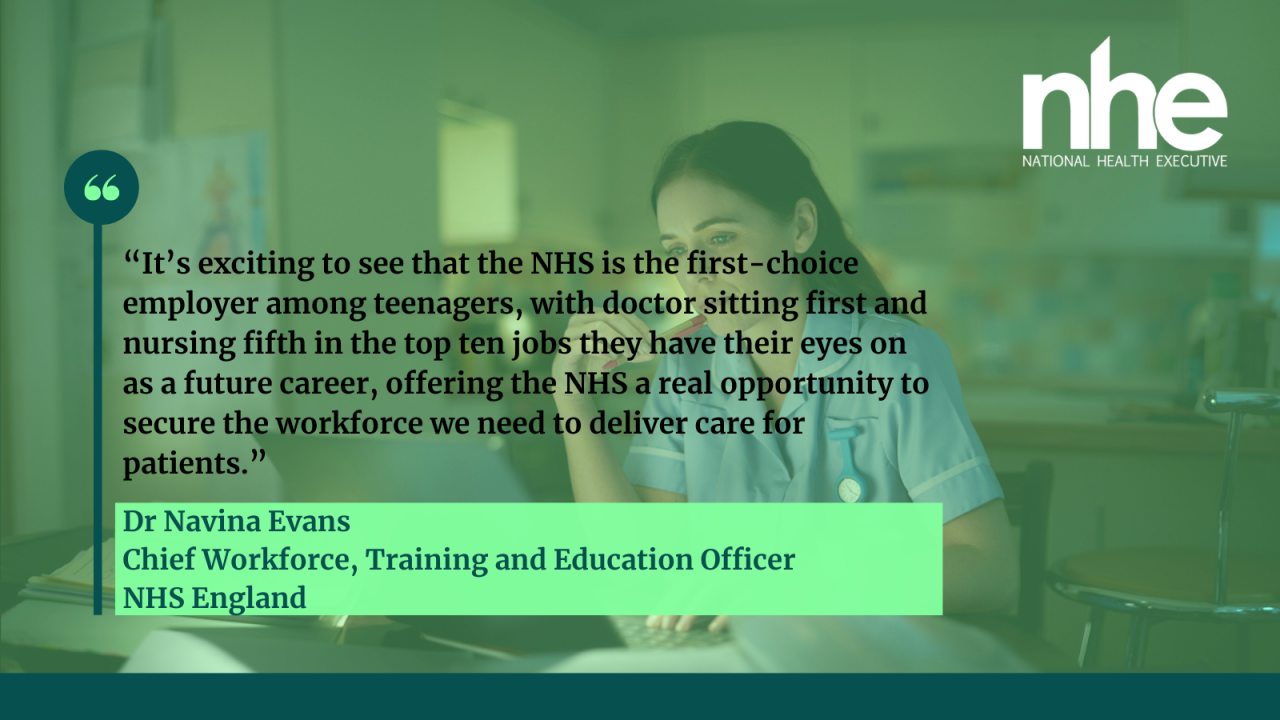A survey has found that many teenagers have identified the NHS as their first choice of employer, with the roles of Doctor and Nurse making the top five career options.
With last week being National Careers Week, 4,000 young people were surveyed and the results found that the NHS was the most popular future employer with 13-16 year olds. Thousands of children across England’s secondary schools listened to talks and watched videos to learn more of the potential opportunities that they can access if they go into a career in the NHS.
Part of this learning saw a range of NHS staff talking to students about how they got to their roles, how they achieved goals, and how they can apply for jobs, apprenticeships, and training to get to their desired career path. These roles spanned all aspects of the 350 opportunities within the NHS, including IT professionals, healthcare scientists, healthcare support workers, midwives, nurses, and pharmacists.

Chief Workforce, Training, and Education Officer for NHS England, Dr Navina Evans, said:
“It’s exciting to see that the NHS is the first-choice employer among teenagers, with doctor sitting first and nursing fifth in the top ten jobs they have their eyes on as a future career, offering the NHS a real opportunity to secure the workforce we need to deliver care for patients.
“Under the NHS Long Term Workforce Plan we are set to double the number of medical school training places, deliver 24,000 more nurse training places, and increase the number of GP training places by 50% to 6,000 per year by 2031/32, meaning even more teenagers can pursue their career of choice as part of the NHS.
“To meet these ambitions, we need to make sure that young people have the confidence to be able to reach their career ambitions and our Step into the NHS programme will hopefully support many of them with the job-seeking skills they need.”
By promoting careers in the NHS to young people, the service is supporting its commitment to long-term workforce growth as it looks to cope with the increasing demand for services. This comes as part of the Long Term Workforce Plan, alongside goals of doubling medical school training places, and increasing the number of GP training places by 50% by 2031.
Apprenticeships are also being drawn on, with a vast pool of talent coming from degree apprenticeships that allow staff to earn whilst they develop their skills. NHS England predicts that, by 2028 one in every six people training for a clinical role will have come through the apprenticeship pathway, including more than 850 medical students.
Image credit: iStock


















